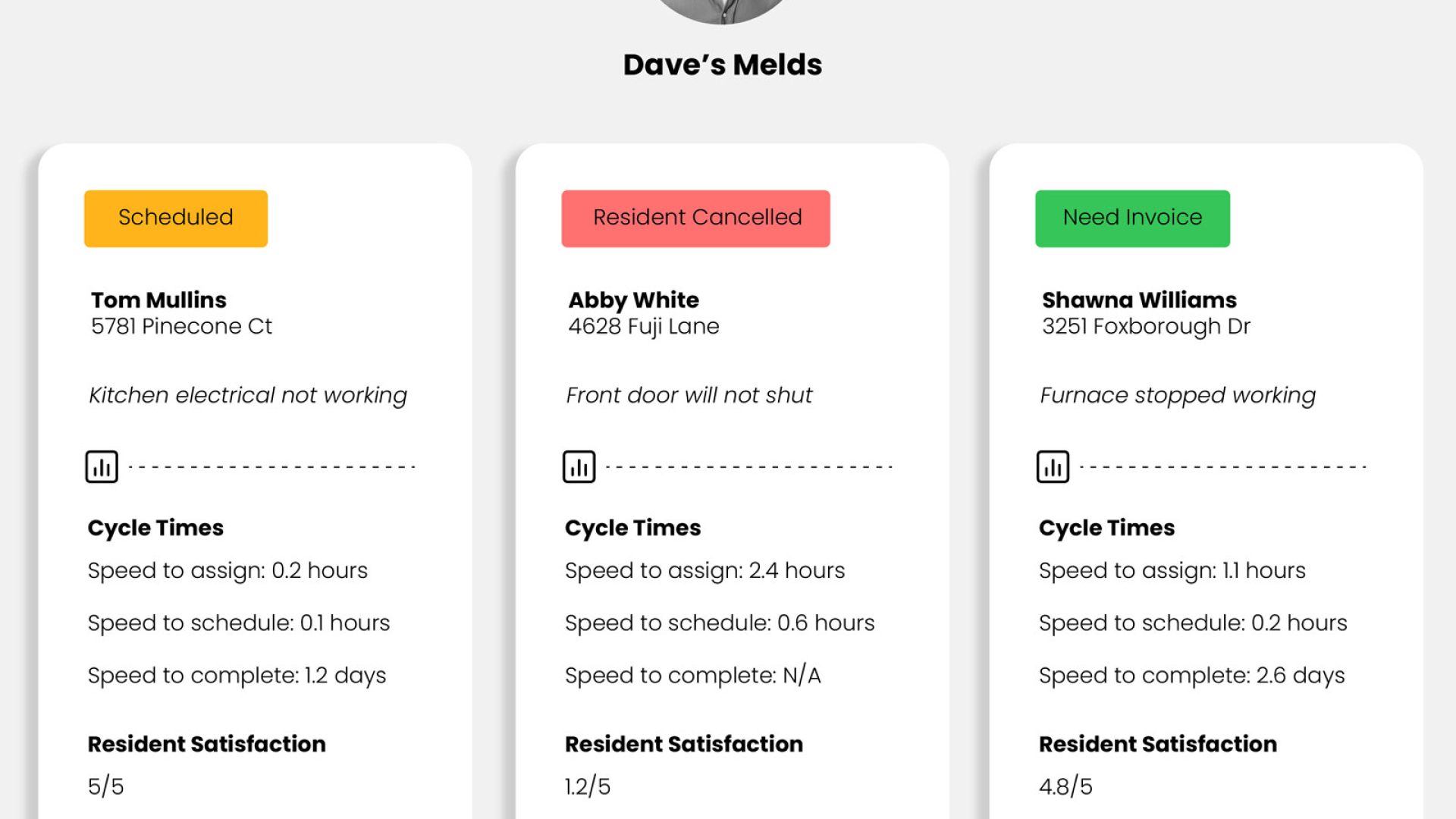Property maintenance plays a vital role in ensuring rental properties’ long-term value, functionality, and curb appeal. Property managers must utilize maintenance metrics or KPIs to manage property maintenance activities effectively. These measurements provide valuable insights into the performance and efficiency of property maintenance processes. This article will delve into property maintenance metrics and KPIs, exploring their significance and how they can be leveraged to optimize the maintenance process and enhance resident satisfaction.
Maintenance metrics enable property owners and managers to track and analyze various aspects of maintenance, including response times, work order completion rates, preventive maintenance tasks, maintenance costs, and resident satisfaction. These metrics allow organizations to gain valuable insights, make informed decisions, and continuously improve their property maintenance strategies. Property management companies need to track maintenance KPIs or metrics to set goals, see their progress, or identify flaws in the maintenance process.

At Property Meld, we often say that our software gives property managers complete oversight of the maintenance process. But what does full oversight mean? If you don’t know why metrics are important or how to use them, having enhanced visibility doesn’t mean much. As industry leaders in the property maintenance space, our goal is to provide property management companies visibility in their maintenance process and show them why these metrics are beneficial and how they can use them to improve their ROI.
Maintenance metrics are essential to the success of your entire property management company; Our data shows that 31% of residents choose to leave a property due to poor maintenance issues. So if you have a problem in your maintenance process, you will find it challenging to retain your current residents. Not to mention, if you are receiving an influx of negative online reviews, it may be impacting your ability to gain new residents.
Maintenance affects more than just the resident experience; maintenance also dramatically impacts a property manager’s relationship with their property owners. Property owners want you to take good care of their assets while keeping costs as low as possible. If owners see high monthly maintenance costs on their owner statements, they may begin looking for another property manager. By tracking essential metrics, you can start to be more predictable and efficient with maintenance which keeps costs lower for property owners. If you want to share key metrics with property owners, you can show them the direct impacts you have had on their business.
KPIs help you measure how various successful aspects of your business or operation perform in real-time. This allows you to avoid problems before negatively impacting your company’s bottom line. When assessing the health of a property management maintenance operation, KPIs are beneficial. You shouldn’t wait till things are going wrong to make a change; by tracking key performance maintenance metrics, you can identify issues before they become more significant problems. This allows you to be proactive instead of reactive and make process changes before your business starts to see a negative impact.
Overall having the ability to see your metrics and, more importantly, understanding what they mean is crucial to the success of your property management company.
If you’re interested in learning more about maintenance metrics and our new Insights dashboard, schedule a demo with our team of maintenance gurus.





